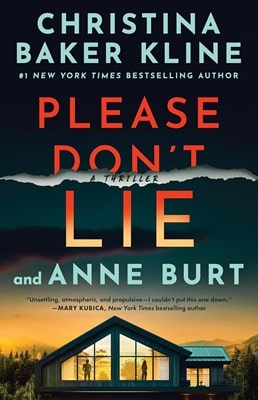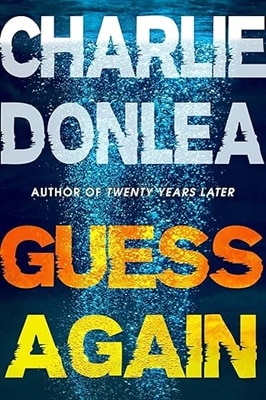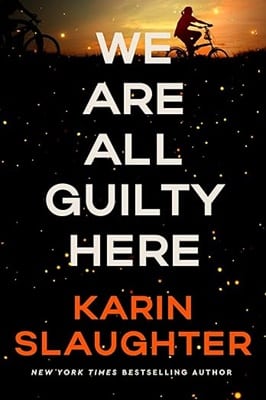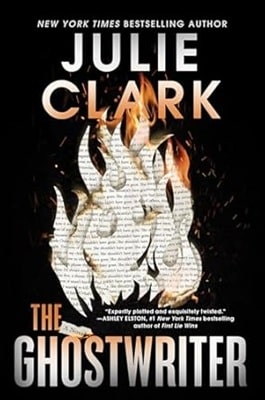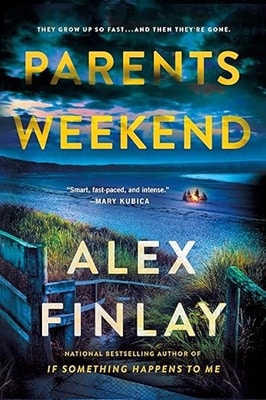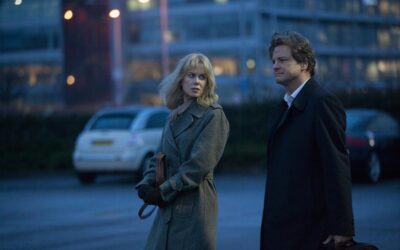
Q&A
Kendra Elliot
Kendra Elliot has sold thirteen million books, hit the Wall Street Journal top ten bestseller list more than a dozen times, and is a three time winner of the Daphne du Maurier award.
She is an International Thriller Writers’ finalist and a Romantic Times finalist. She grew up in the lush and rainy Pacific Northwest but now spends most of her time wearing flip flops.
Q: For those who haven’t read your Columbia River novels, can you share the origin story of Her First Mistake?
Kendra: Detective Noelle Marshall first appeared as a secondary character in a few of the Columbia River novels. She wasn’t planned, and she fascinated me from the moment she walked on the page. My readers’ response to her was just as positive. She was a very private person, and it’d been hinted that she was very wealthy–but I didn’t know why. This book was my way to explore how she grew up on the “wrong side of the tracks” but became a wealthy woman and a detective.
Q: Taking a supporting character from one series and making them the main character in their own series must have been really gratifying. How did you craft Noelle’s backstory? Did you have inklings of what it would be, when you first introduced the character?
Kendra: It’s the best feeling. My readers love crossover stories, and they let me know how excited they get when a character from one of their favorite series pops up in a new book. I had no idea of Noelle’s background when I sat down to write the book. I knew she was a California transplant, had been married twice, and had a lot of money; that was all. Creating her story was a lot of fun.
Q: This book mainly takes place in the past, but has flash-forward scenes, which is different from your other books. How did that change your writing process? What challenges did you face in mapping out the narrative?
Kendra: I just finished writing my 24th novel. When you get to this point—actually a lot earlier than this point—you look for something to invigorate the writing process. My editor had suggested the idea of a flash-forward format; it didn’t make sense to me. But as I thought about it, an idea started to form and that inspired the story. I set the book in the past, but in brief intermittent scenes, Noelle is interviewed by the FBI in the present and gives her side of what led to a murder in the past. It flowed naturally for me. I’m not a plotter, so this structure provided a solid backbone for me to work from.
Q: You’ve written 23 thrillers set in Oregon, where you were born and raised. Why is that setting meaningful to you? What is it about the state that lends itself to crime fiction?
Kendra: I moved to Florida for three years and currently spend a lot of time in Southern Utah. People frequently ask if I’ll start setting books in these regions. The answer is always no. I don’t know the history or the people or the culture of these states. I don’t know how they’ve changed over the decades. I know Oregon, and I’ll always have a home base here. I know the politics, the regions, the history, and the people. I’m pretty certain I’m a fourth-generation Oregonian—I’m not positive that my great-grandmother was born here, but I know she was raised here as a child.
As far as it lending itself to crime fiction, I think that might be a Pacific Northwest thing. My agent frequently comments on the dearth of crime writers in the PNW. It’s gray here a lot of the year; I think it’s how we entertain ourselves.
Q: Memory loss is a popular trope in a thriller, and it’s one you use very creatively and suspensefully in the book. Was this an aspect that required a lot of research?
Kendra: I didn’t do a lot of research into memory loss. Everything I read indicated that head injuries, memory loss, and brain damage are different for every person. There’s too much that we simply don’t know. Noelle’s problems simply had to be plausible. I got to decide how deep they went.
Q: Film casting fun: who would you cast as Noelle for the film or TV series?
Kendra: I rarely envision my books’ characters in my head. And so when people ask me this question, I never have an answer. But when I first wrote Noelle in the Columbia River series, I immediately saw her as the Rebecca Welton character from Ted Lasso, played by Hannah Waddington. Noelle had the same money, confidence, smarts, and looks.
Q: What’s next for Noelle? Anything you can tell us about book 2?
Kendra: I just finished writing the second book in this series, No One Knew. I dug deeper into FBI Special Agent Max Rhodes’ background—Noelle’s love interest—and threw in a little Mercy Kilpatrick, who my readers always love to see on the page. All I’ll say is that dead bodies are turning up, and the county and FBI investigations are about to collide.
Q: What have you read recently that you really loved and recommend?
Kendra: I recently finished Karen Marie Moning’s The House at Watch Hill. It’s the first in a new series. Lots of witchy stuff going on in a mysterious small town. Good stuff. I can’t wait for the next.
Kendra Elliot's Latest
Her First Mistake
Thirteen years ago, Assemblyman Derrick Bell was murdered in his home by an intruder. His wife, Noelle Marshall, was left for dead. The crime was unsolved, but it wasn’t forgotten.
Today the FBI is tackling a fresh perspective on the case and looking to Noelle, now a detective for the Deschutes County sheriff’s office, for new clues. It is reopening everything Noelle thought was behind her. Memories of her escape from a traumatic childhood. A marriage that wasn’t the perfect love story she’d been promised. And a husband whose charm and privilege hid a dark side. But Noelle has been hiding something too: a secret about the night Derrick died that she has never told anyone.
As past and present and leads and misleads collide, one thing is frighteningly clear. Derrick’s murder wasn’t just unsolved. It’s unfinished. And only the truth—no matter the risk—can save the next victim.
More Psychological Thrillers
advertisement
Psychological Thriller Features
Labyrinth of the mind
Intricate mind games and compelling narratives
Psychological Manipulation in Thrillers
Memory, Identity, and Madness
The Dark Side of the Mind
The darkest corners of the mind are not just settings but essential characters


